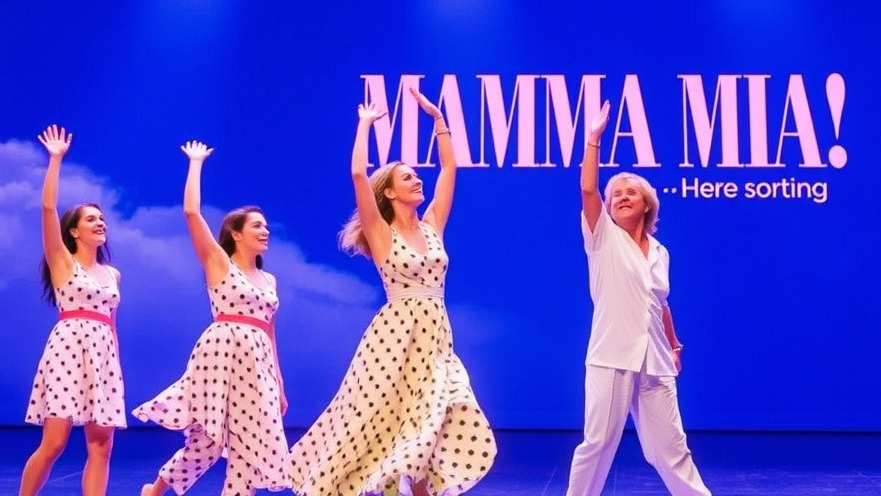
The Timelessness of Mamma Mia!
As the beats of Abba's catchy tunes filled the Winter Garden Theatre, it became evident that Mamma Mia! has solidified its standing as not just a musical, but a cultural phenomenon. This jubilant show, which returned to Broadway, captures the essence of escapism, luring audiences away to a sun-soaked Greek island amidst its upbeat melodies and fantastical storytelling.
Mamma Mia! and its Cultural Impacts
Since its conception in 1999, Mamma Mia! has paved the way for the jukebox musical genre, inspiring countless productions that have sought to replicate its success. The charm of the musical lies in its vibrant energy and relatability, drawing fans of all ages. Even after its initial Broadway closure in 2015, it never truly exited public consciousness, remaining a fixture of cultural discussion, nostalgia, and joy.
Exploring the Magic of Abba's Music
The revival of Mamma Mia! serves as a testament to the magic of Abba’s music, which has evolved from simple pop tunes to timeless anthems reflective of collective celebration and joy. The quartet’s catchy lyrics and melodies have captured the hearts of many, traversing generational lines. Songs like "Dancing Queen" are not merely nostalgic; they're a testament to a lifestyle grounded in festivity and communal experience, making them the perfect backbone for a theatrical masterpiece.
What Makes a Successful Jukebox Musical?
The formula for a successful jukebox musical, as seen in Mamma Mia!, combines captivating storytelling, memorable music, and an atmosphere of sheer fun. Critics and audiences alike have lauded the production for maintaining a sense of joy and absurdity. The musical brilliantly fuses plot with pop, showcasing how music can elevate emotional experiences while delivering poignant narratives.
A New Dawn for Musical Theatre
With audiences increasingly eager for live performances in a post-pandemic world, Mamma Mia! is well-positioned to lead the charge for the next era of musical theatre. Its light-hearted charm serves as a reminder of the joy that live performance can bring, reminding digital nomads and cultural enthusiasts alike of the power of shared experiences. The collective joy of the theater can foster emotional connections and encourage new discussions about the role of art in our everyday lives.
Future of Mamma Mia! in Cinema
The anticipation surrounding another film adaptation of Mamma Mia! signifies that this cultural icon is far from over. With plans for a third installment in development, the show’s creator Judy Craymer teased that fans can look forward to a fresh storyline. As cinema continues to merge with live theatre, the evolution of Mamma Mia! illustrates a growing trend of incorporating cherished narratives into various formats, enhancing its reach and impact.
Conclusion: Embracing the Experiential
For digital nomads and culture enthusiasts, the return of Mamma Mia! is not merely a trip down memory lane but an opportunity to engage with the magic of live performances and nostalgic music that transcends borders. As you explore the world, consider the experiences that uplift your spirit, just as this musical does for so many.
Join the conversation about your favorite musicals, or share where your travels have taken you and how they influenced your appreciation for culture!
 Add Row
Add Row  Add
Add 




Write A Comment